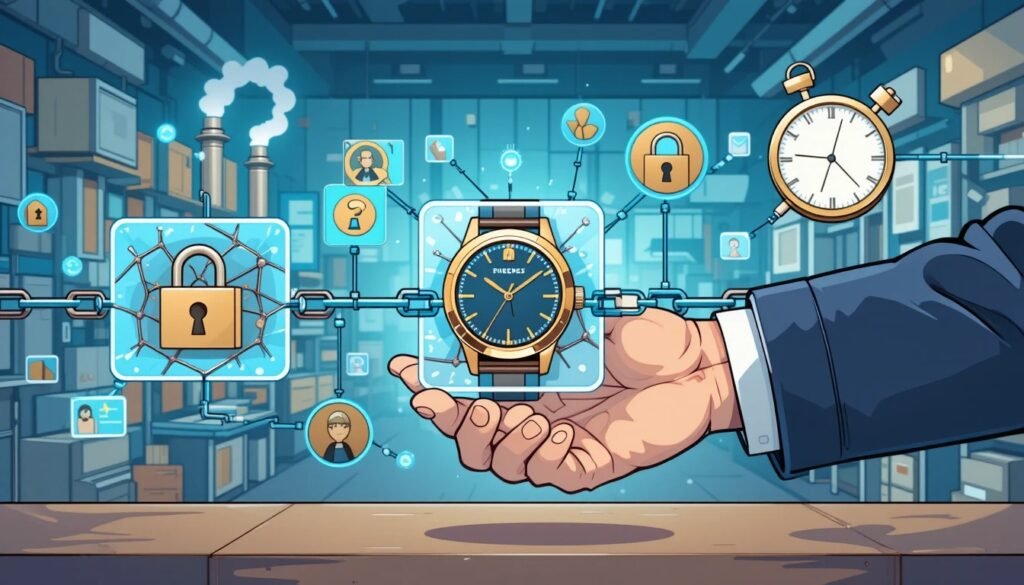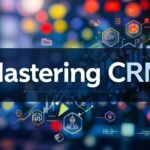Now Reading: Modern Sales Success: Build Relationships & Solve Problems
-
01
Modern Sales Success: Build Relationships & Solve Problems

Modern Sales Success: Build Relationships & Solve Problems
Introduction: The Shift in Sales Dynamics
Sales today isn’t what it used to be. Gone are the days when flashy pitches, aggressive closing techniques, and product-first strategies could win over customers. Modern buyers are more informed, more skeptical, and more demanding. They expect sales professionals to go beyond selling products — they want someone who understands their challenges, empathizes with their needs, and helps them solve real problems. This is where modern sales success lies: not in pushing deals but in building authentic relationships and offering solutions that matter. By mastering these skills, sales professionals can create long-term partnerships, improve customer loyalty, and stand out in a crowded market.
Why Relationships Drive Modern Sales Success
From Transactions to Trust
Traditional sales relied on quick deals and transactional exchanges. Today, however, trust has become the new currency. Customers don’t just want to buy a product; they want to invest in a relationship with a company or professional they can rely on.
A salesperson who focuses on trust over transactions demonstrates integrity, consistency, and care. This shift not only improves customer retention but also generates referrals and repeat business — two critical drivers of sustainable growth.
The Psychology Behind Relationship Selling
Sales isn’t just about logic — it’s deeply emotional. Research shows that people make purchase decisions based on emotions and later justify them with logic. Relationship selling taps into this by creating genuine connections.
When customers feel understood and valued, they are far more likely to remain loyal, even if a competitor offers a cheaper option. In essence, relationships reduce the role of price as the deciding factor, allowing salespeople to sell on value rather than cost.
Problem-Solving as a Sales Superpower
Identifying Customer Pain Points
The most successful sales professionals are problem-solvers first and sellers second. Customers don’t care about features; they care about how those features can solve their challenges. This requires asking the right questions and actively listening to uncover underlying pain points.
For example, instead of asking, “Do you need this product?” a problem-solving salesperson might ask, “What’s the biggest challenge you’re facing in scaling your operations?” This approach invites deeper conversations and positions the salesperson as a trusted advisor.
Offering Solutions, Not Just Products
Modern buyers aren’t looking for another product; they’re looking for solutions that improve their lives or businesses. Salespeople who tailor their offerings to match a customer’s unique context deliver far greater value.
This solution-focused approach turns sales conversations into collaborative problem-solving sessions, where the buyer feels like a partner in the process.
Case Study: Sales Success Through Problem-Solving
Consider a software company that sells project management tools. Instead of pitching features, a salesperson identified that a client’s real issue was poor cross-team communication. By focusing on that pain point and demonstrating how the tool improved collaboration, the salesperson closed a high-value deal — not by selling a product, but by solving a problem.
Core Pillars of Modern Sales Success
Empathy and Active Listening
Empathy is the foundation of relationship-based sales. Customers want to feel heard, and salespeople who practice active listening can uncover insights that competitors might miss. This builds trust and fosters deeper connections.
Value-Driven Conversations
Every interaction with a customer should provide value. Whether it’s sharing industry insights, suggesting solutions, or offering helpful resources, value-driven conversations establish credibility and position the salesperson as an expert.
Long-Term Relationship Building
True sales success isn’t about closing one deal; it’s about nurturing long-term partnerships. By maintaining regular, meaningful contact with customers and continuously providing value, sales professionals can build relationships that last for years.
Consultative Selling: The Modern Approach
Key Consultative Frameworks (SPIN, Challenger, Solution Selling)
Consultative selling focuses on guiding customers through discovery rather than pushing products. Popular frameworks include:
- SPIN Selling (Situation, Problem, Implication, Need-payoff) – Helps uncover pain points and create urgency.
- Challenger Sale – Encourages salespeople to challenge customer assumptions and teach new perspectives.
- Solution Selling – Positions products as tailored solutions to specific problems.
How to Ask Better Sales Questions
Consultative selling requires asking open-ended, thought-provoking questions that go beyond surface-level needs. For example:
- “What are your top three priorities this quarter?”
- “What would success look like if we solved this challenge together?”
Turning Problems into Opportunities
Every customer problem is an opportunity to provide value. Sales professionals who reframe challenges as opportunities can guide clients toward solutions that drive long-term results.
Tools & Technology Empowering Relationship Sales
CRM Systems & Customer Data Insights
Customer Relationship Management (CRM) systems like Salesforce, HubSpot, or Zoho provide sales teams with powerful tools to manage relationships. They track interactions, highlight opportunities, and give salespeople the data they need to personalize outreach.
AI and Automation for Personalized Sales
Artificial intelligence tools can analyze customer data to suggest the best times to reach out, predict buying behaviors, and even draft personalized emails. Far from replacing salespeople, AI enhances their ability to focus on relationship-building by handling repetitive tasks.
Practical Tips for Sales Professionals
Building Rapport Quickly
Start conversations with authenticity. Find common ground, use the customer’s name often, and demonstrate genuine curiosity. Small actions like remembering personal details can go a long way in building trust.
Storytelling as a Sales Tool
People remember stories more than facts. Sharing a relevant customer success story helps prospects visualize how your solution can work for them, creating a stronger emotional connection.
Following Up Without Being Pushy
Follow-up is essential, but it must be done with tact. Instead of sending generic “just checking in” emails, provide value with each touchpoint — whether it’s a helpful article, a case study, or a personalized suggestion.
FAQs on Modern Sales Success
1. What is the most important skill for modern sales success?
The most important skill is active listening combined with problem-solving. Customers want to feel understood and valued.
2. How does relationship selling differ from traditional sales?
Traditional sales focus on quick transactions, while relationship selling emphasizes trust, long-term partnerships, and customer loyalty.
3. Can technology replace relationship building in sales?
No. Technology supports relationship building but cannot replace the human empathy and trust required in modern sales.
4. What is consultative selling and why is it effective?
Consultative selling involves guiding customers through their problems and tailoring solutions to their unique needs. It’s effective because it prioritizes value over features.
5. How do I identify customer pain points?
By asking thoughtful, open-ended questions and listening carefully. Customers often reveal more when they feel genuinely heard.
6. Is problem-solving really more important than selling skills?
Yes. In fact, problem-solving is the new selling. Customers are drawn to professionals who can help them overcome challenges rather than simply pitch products.
Conclusion: Building a Future-Proof Sales Strategy
Modern sales success isn’t about aggressive closing techniques — it’s about empathy, trust, and solutions. By focusing on relationships and problem-solving, sales professionals can future-proof their careers and deliver meaningful value to customers.
The future of sales belongs to those who move from selling products to building partnerships. With the right mix of consultative selling, empathy, and technology, you can not only meet but exceed customer expectations.
References
- Harvard Business Review – The New Science of Sales Strategy 👉 https://hbr.org/2016/09/the-new-science-of-sales-strategy
- Forbes – Why Relationship Selling Is the Future of Sales 👉 https://www.forbes.com/sites/forbesbusinesscouncil/2021/05/11/why-relationship-selling-is-the-future-of-sales/
- HubSpot Blog – Consultative Selling Techniques 👉 https://blog.hubspot.com/sales/consultative-selling
- McKinsey – The Future of B2B Sales Is Hybrid👉 https://www.mckinsey.com/business-functions/growth-marketing-and-sales/our-insights/the-future-of-b2b-sales-is-hybrid
- Salesforce – State of Sales Report 👉 https://www.salesforce.com/resources/research-reports/state-of-sales/















